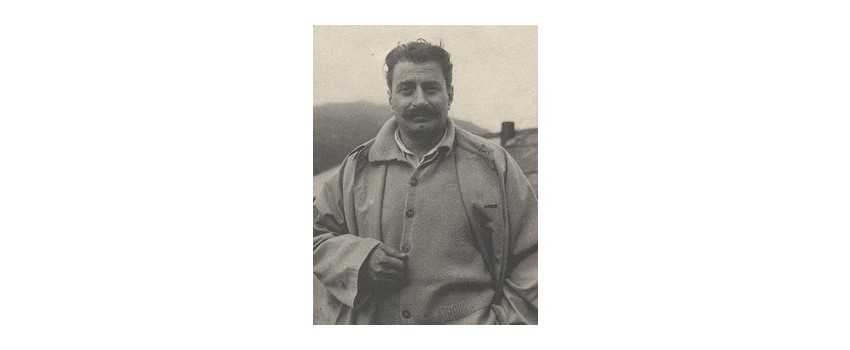Guareschi, Giovannino
Giovannino Guareschi, an Italian journalist, cartoonist, and humorist, left a lasting impact on the world of literature and art through his iconic character, Don Camillo. Born on May 1, 1908, in Fontanelle di Roccabianca, Province of Parma, Guareschi's journey to success was not without its challenges. From his early career in journalism to his imprisonment during World War II, Guareschi's life was filled with ups and downs that ultimately shaped his unique perspective and comedic genius.
Early Years and Humble Beginnings
Giovannino Guareschi was born into a middle-class family, where he often joked about being baptized with the name Giovannino, meaning "little John" or "Johnny" in Italian. However, his family faced financial difficulties in 1926, forcing him to abandon his studies at the University of Parma. Despite this setback, Guareschi's passion for writing led him to secure a position at the local daily newspaper, the Gazzetta di Parma.
Rise in Satirical Journalism
Guareschi's talent for satire quickly became evident, and in 1929, he became the editor of the satirical magazine Corriere Emiliano. This role allowed him to showcase his wit and humor, captivating readers with his unique take on societal and political issues. His success continued as he became the principal editor of another satirical magazine called Bertoldo from 1936 to 1943.
Turbulent Times and Imprisonment
In 1943, Guareschi's life took a dramatic turn when he was drafted into the army. This unexpected development proved to be a blessing in disguise as it helped him avoid conflict with the fascist authorities. Guareschi eventually became an artillery officer but was captured and imprisoned by the Germans as an Italian military internee when Italy signed an armistice with the Allies.
For almost two years, Guareschi and other Italian soldiers were held in camps in German-occupied Poland, with Stalag X-B near Sandbostel being one of the notable locations. During this time, Guareschi documented his experiences in his book "Diario Clandestino" (My Secret Diary), shedding light on the hardships faced by prisoners of war.
Post-War Success and Political Commentary
After the war, Guareschi returned to Italy and launched a weekly satirical journal called Candido in 1945. As a staunch supporter of the Democrazia Cristiana party, he used his magazine to criticize and satirize the Communists, creating memorable caricatures to convey his message. One such cartoon by Carlo Manzoni, published in Candido in 1950, humorously mocked the President of the Republic, Luigi Einaudi.
However, Guareschi's satirical approach was not without consequences. The cartoon was deemed "in contempt of the President," leading to Guareschi being found guilty and sentenced as the magazine's director. In another instance, Guareschi faced charges of libel in 1954 after publishing facsimiles of wartime letters from resistance leader and former Prime Minister Alcide De Gasperi.
The Birth of Don Camillo
Guareschi's most renowned creation, Don Camillo, made his debut in the late 1940s. Don Camillo, a strong-willed Italian priest, became the central character in a series of short stories that depicted his ongoing struggle with Peppone, the equally hot-headed Communist mayor of a village in the Po River Valley. Guareschi's stories explored the clash between these two contrasting personalities, providing social commentary and humor along the way.
The Don Camillo stories gained widespread popularity and were adapted for various mediums, including radio, television, and film. French actor Fernandel portrayed the beloved character in the Don Camillo series, bringing Guareschi's creation to life on the silver screen.
Health Decline and Continued Contributions
By 1956, Guareschi's health had deteriorated, and he sought therapy in Switzerland. Despite his declining physical condition, he remained dedicated to his craft. In 1957, he stepped down as the editor of Candido but continued to contribute to the publication, leaving his mark on the Italian satirical scene.
Legacy and Cultural Impact
Guareschi's legacy lives on through his enduring characters and his ability to blend humor with social and political commentary. Don Camillo and Peppone became symbols of the ideological clash between the church and the Communist party, capturing the imagination of readers and viewers alike.
Today, Guareschi's works continue to be celebrated and studied, reaffirming his status as one of Italy's most influential humorists and cartoonists. His unique perspective and insightful humor serve as a reminder of the power of satire in challenging societal norms and sparking meaningful conversations.
In conclusion, Giovannino Guareschi's life and career were marked by resilience, creativity, and a commitment to using humor as a tool for social commentary. His contributions to the world of journalism, cartooning, and literature have left an indelible mark, ensuring his place in history as a master of satire and wit.

